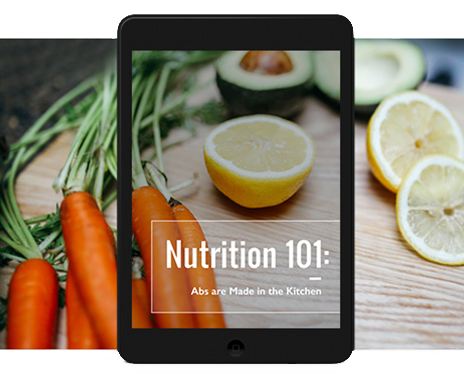|
The benefits of slow eating include better digestion, better hydration, easier weight loss or maintenance, and greater satisfaction with our meals. Meanwhile, eating quickly leads to poor digestion, increased weight gain, and lower satisfaction. The message is clear: Slow down your eating and enjoy improved health and well-being. When you eat slowly, you digest better. You lose or maintain weight more easily. Yet you also feel more satisfied with each meal. Conversely, if you rush your meals, your digestion suffers. Meals are stressful. And it might seem like each meal is over too soon, which often makes you want to eat more. Or you “overshoot the runway”, finishing the meal before your natural satiety signals kick in, and ending up suddenly, uncomfortably, overstuffed. It’s simple: Slow down your eating and enjoy improved health and well-being. The value of slow food We’re a rushed, distracted, and too-busy society. Most people in the UK eat quickly. Really quickly. We rarely take the time to savour our food or even chew it properly. We rush our food no matter who we are. For those of you that are trying to lose weight, particularly as you get older, you have to learn to eat more slowly. It’s not always easy. But your partner and your waistline will both appreciate it when you do. Learning to eat more slowly is one of the simplest yet most powerful things you can do to improve your overall health. Why eat slowly? Sensing satisfaction One of the most important benefits of eating slowly is that it gives your body time to recognise that you’re full. It takes about twenty minutes from the start of a meal for the brain to send out signals of satiety. Most people’s meals don’t even last that long! Imagine the extra calories you could ingest simply because you didn’t allow your body time to register that it no longer required food. Now imagine the effect of those extra calories on your weight. Eating slowly also helps us feel more satisfied, which is different than just being “full”. When you slow down, savour a meal, pay attention to tastes and textures, and appreciate each mindful bite, you leave the table feeling good in your soul even if all you ate was a ham sandwich. Improved digestion Eating slowly also helps our digestion. Think of digestion as a chain reaction. As soon as we see, smell, or think about food (step 1), we start salivating to prepare for putting that food in our mouth (step 2). Saliva contains enzymes that break the food down, and moistens the mouth for easier swallowing. Meanwhile, digestive steps 3, 4, 5 etc. have to get ready to go to work. Our stomachs start to secrete more acid. Our small intestine starts to get ready for some peristalsis. And so forth. If we rush this process, we force our GI tract to deal with stuff before it’s fully prepared. Surprises are great on birthdays, not so great during digestion. At the University of Rhode Island, researchers examined how eating speed affected the early stages of digestive processing by observing 60 young adults eat a meal. Slow eaters consumed 2 ounces of food per minute. Medium-speed eaters consumed 2.5 ounces of food per minute. Fast eaters consumed 3.1 ounces per minute. They also took larger bites and chewed less before swallowing. This means that not only are fast eaters putting more food down in a given amount of time, that food isn’t as well-processed. Food is essentially landing in fast eaters’ stomachs in big lumps. Digestion starts in the mouth, so large bites that are inadequately chewed will be more difficult for your stomach to turn into chyme – the liquid mix of partially digested food, hydrochloric acid, digestive enzymes, and water that passes through the pyloric valve on its way to elimination. Food that isn’t properly broken down into chyme can lead to indigestion and other potential GI problems. Smaller portions – without trying Most of the research on this topic suggests that eating slowly helps you to eat less. That’s especially useful information if you’re trying to lose or maintain weight. In another University of Rhode Island study, researchers served lunch on two different occasions to 30 normal-weight women. The meal in both cases consisted of an enormous plate of pasta with a tomato-vegetable sauce and some Parmesan cheese, along with a glass of water. At each visit, researchers instructed the women to eat to the point of comfortable fullness. But during one visit, they also told them to eat as quickly as possible, while on the other visit, participants were asked to eat slowly and to put down their utensils between bites. When the researchers compared the difference in food consumption between the quickly eaten lunch and the slowly eaten lunch, here is what they found:
That is 67 less calories in 20 more minutes! If you extrapolate that to three meals per day, you can see how quickly those extra calories could add up. And here’s another interesting twist: When the women ate their lunch quickly, they reported more hunger an hour later than they did after their slowly eaten lunch. So not only did eating quickly lead to greater food consumption, it actually satisfied the women less! Conversely, of course, slow eating meant less food but more long-lasting satisfaction. Better hydration Good hydration helps maintain the balance of our body’s fluids, energises muscles, helps our kidneys and bowels work more efficiently, and improves the appearance of the skin. And one side benefit of eating slowly is that it seems to increase water consumption during meals. In fact, that same University of Rhode Island study compared the amount of water that the participants drank. When they ate slowly, the women drank 409 ml of water. When they ate quickly, they drank only 289 ml of water! Results like that have sometimes led scientists to wonder if drinking more water is what helps people to feel satisfied for longer. So the University of Rhode Island researchers put this theory to the test. (By now you’ve probably noticed that URI is really into this slow eating research.) In a variation of their lunchtime study, they controlled water intake so that participants drank the same amount of water at each sitting. In this version of the test, whether they ate slowly or quickly, the women consumed approximately the same amount of food. And at the end of their meals, they also gave a similar appetite rating. But an hour after the meal, those who’d eaten slowly reported less hunger and a lower desire to eat, with greater levels of satiety. Researchers concluded that drinking more water might be key to helping us eat less during a meal. But eating slowly seems to decrease hunger and lead to higher levels of satiety between meals. Takeaway – eat slowly, drink more water, consume less food, and feel more satisfied! All-around win! Is eating quickly really so bad? Eating slowly may not be the Holy Grail for weight loss, but it will certainly help you with portion control and greater feelings of satiety. Meanwhile, the research on eating quickly is pretty unanimous: Eating quickly promotes weight gain and makes you feel out of control of your eating habits. Weight gain Both large-scale population studies and research on smaller groups (such as fire fighters) who habitually eat quickly concur: Fast eaters gain more weight over time than slow eaters. If weight loss or maintenance is your goal, slow down. Disordered eating and eating speed If you’ve ever experienced a binge episode, you’ll know the feeling. A powerful urge to get the food in there as fast as possible. Research shows that one of the hallmarks of binge eating is rapid eating speed. People who suffer from compulsive eating often feel out of control of their eating behaviour. After a binge or episode of over-eating, they feel guilty, ashamed, and regretful. The good news is that you can often derail a binge or over-eating episode and help yourself get back in the driver’s seat simply by slowing down. When you’re in the grip of a binge or an over-eating episode that feels overwhelming, just try to slow down as soon as you realise what’s happening. You might not feel able to stop eating right away, and that’s OK. But most people can slow themselves down, even when the binge demons are howling. It’s sort of like having someone call your name when you’re lost in thought and snap you out your daydream. This simple “binge slowly” strategy can often shift your attention, re-focus you, and help you regain a sense of control. Conclusions Most of us lead hectic, fast-paced lives, so it’s understandable that we might try to rush our meals. But eating quickly does us no favours. When we eat too quickly we end up eating more than we need, which leads to poor digestion, weight gain, and lower satisfaction from eating. Eating slowly, in contrast, makes for better digestion, easier weight maintenance – and much greater satisfaction from our meals. Some helpful tips
Eat, move and live...betterYes, I know the health and fitness world can sometimes be a confusing place. But it doesn't have to be. Let me help you make sense of it all with my coaching. You'll learn the best eating, exercise and lifestyle strategies, unique and personal to you. Get in touch with me and let me know what you need help with.
0 Comments
Leave a Reply. |
Services |
Company |
|
|
© COPYRIGHT 2015. ALL RIGHTS RESERVED.
|
Website Design by My PT Website
|



 RSS Feed
RSS Feed